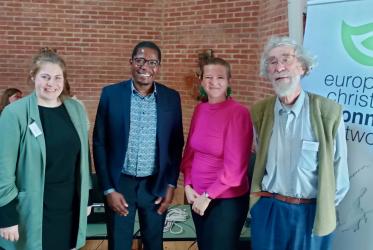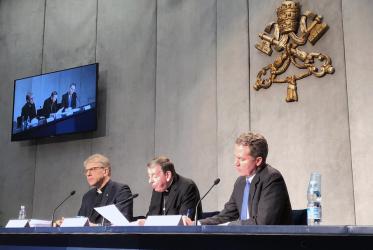Displaying 1 - 20 of 28
Greenland’s grand Gospel preacher
07 February 2020
A humble servant in God’s herd
10 July 2019
“There are no spare parts for whales”
13 June 2019
Dealing with traumas and healing of wounds
04 June 2019
WCC condemns massacre of farmers in Philippines
12 April 2019
All pilgrim routes lead to COP24
11 December 2018
#WCC70: A prayer about health and healing
20 July 2018
“Overcoming economic injustice” vision of WCC’s Athena Peralta
23 February 2017
New videos help congregations hasten HIV response
20 October 2016
Voices from HIV workshop reflect deep impact
07 April 2016
WCC/UN conference calls for coordinated action on refugee crisis
20 January 2016
Consultation considers right to food in context of climate change
15 December 2015










